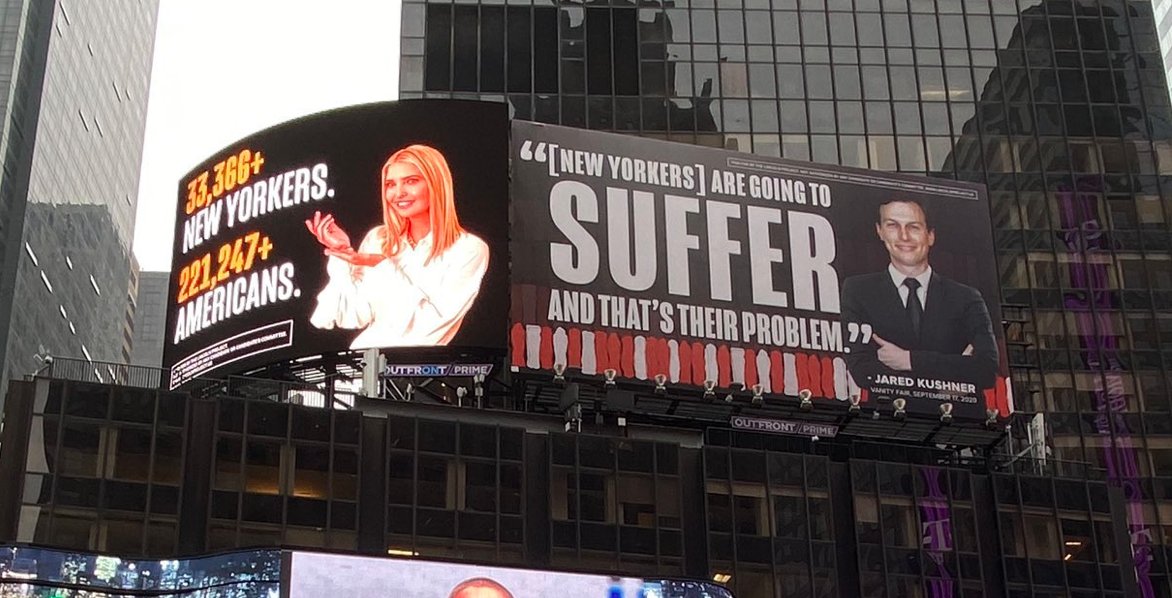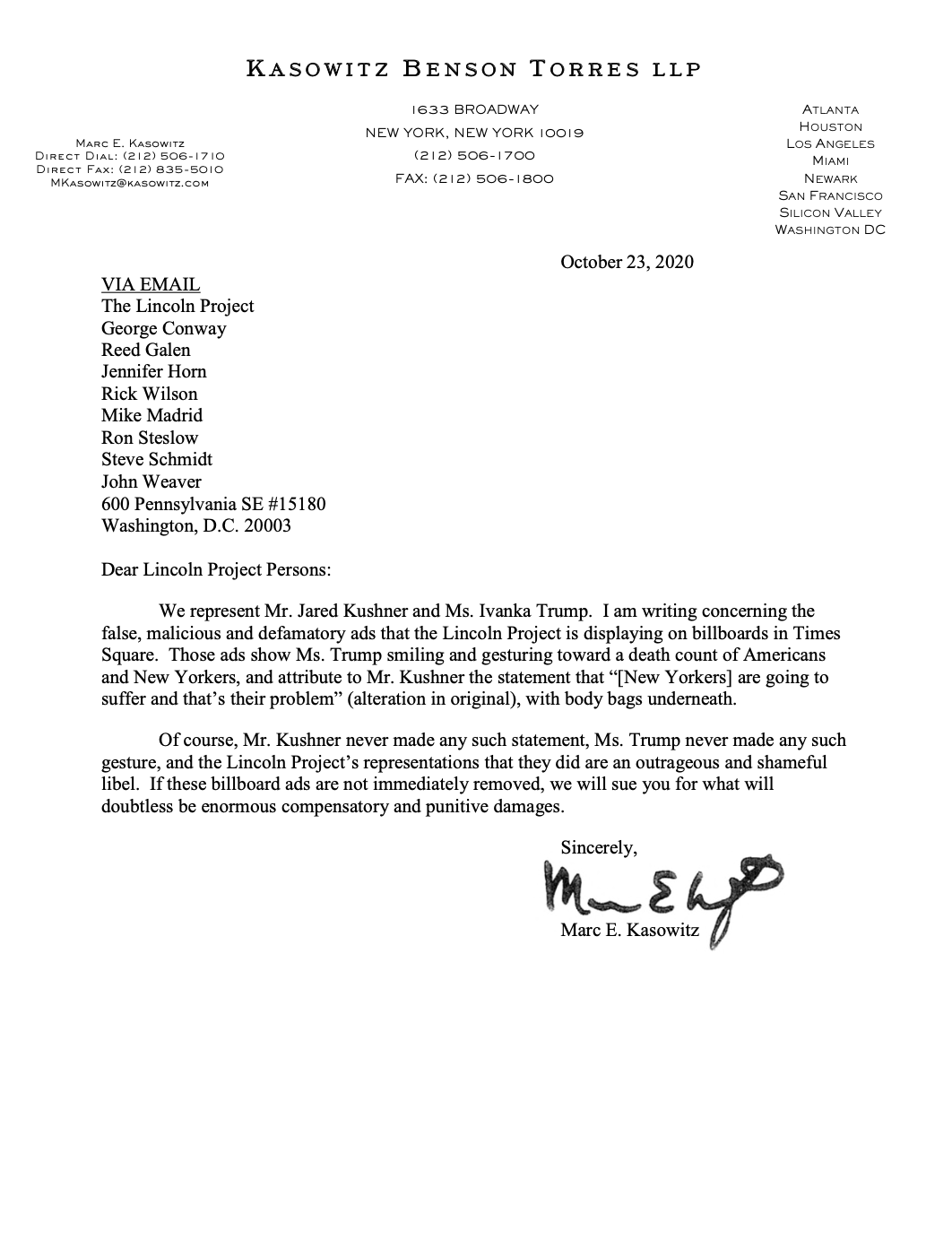law
An artificial intelligence firm downloaded for free millions of copyrighted books in digital form from pirate sites on the internet. The firm also purchased copyrighted books (some overlapping with those acquired from the pirate sites), tore off the bindings, scanned every page, and stored them in digitized, searchable files. All the foregoing was done to amass a central library of “all the books in the world” to retain “forever.”
From this central library, the AI firm selected various sets and subsets of digitized books to train various large language models under development to power its AI services. Some of these books were written by plaintiff authors, who now sue for copyright infringement.
[…]
Defendant Anthropic PBC is an AI software firm founded by former OpenAI employees in January 2021. Its core offering is an AI software service called Claude. When a user prompts Claude with text, Claude quickly responds with text — mimicking human reading and writing. Claude can do so because Anthropic trained Claude — or rather trained large language models or LLMs underlying various versions of Claude — using books and other texts selected from a central library Anthropic had assembled. Claude was first released publicly in March 2023. Seven successive versions of Claude have been released since. Users may ask Claude some questions for free. Demanding users and corporate clients pay to use Claude, generating over one billion dollars in annual revenue.
[…]
This order grants summary judgment for Anthropic that the training use was a fair use. And, it grants that the print-to-digital format change was a fair use for a different reason. But it denies summary judgment for Anthropic that the pirated library copies must be treated as training copies.
We will have a trial on the pirated copies used to create Anthropic’s central library and the resulting damages, actual or statutory (including for willfulness). That Anthropic later bought a copy of a book it earlier stole off the internet will not absolve it of liability for the theft but it may affect the extent of statutory damages. Nothing is foreclosed as to any other copies flowing from library copies for uses other than for training LLMs.
{ Judge rules Anthropic training on books it purchased was “fair use,” but not for the ones it stole | United States District Court, Northern District of California | Full Order | PDF }
books, law, robots & ai | June 25th, 2025 4:41 am

Maybe the easiest lucrative job in finance is:
Take a job at a hedge fund.
Get handed an employment agreement on the first day that says “you agree not to disclose any of our secrets unless required by law.”
Sign.
Take the agreement home with you.
Circle that sentence in red marker, write “$$$$$!!!!!” next to it and send it to the SEC.
The SEC extracts a $10 million fine.
They give you $3 million.
You can keep your job! Why not; it’s illegal to retaliate against whistleblowers.
Or, you know, get a new one and do it again.
[…]
The theory here is that the US Securities and Exchange Commission has a whistleblower protection rule that says that “no person may take any action to impede an individual from communicating directly with the Commission staff about a possible securities law violation, including enforcing, or threatening to enforce, a confidentiality agreement.”
[…]
Anyway:
OpenAI whistleblowers have filed a complaint with the Securities and Exchange Commission alleging the artificial intelligence company illegally prohibited its employees from warning regulators about the grave risks its technology may pose to humanity, calling for an investigation.
[…]
OpenAI made staff sign employee agreements that required them to waive their federal rights to whistleblower compensation, the letter said. These agreements also required OpenAI staff to get prior consent from the company if they wished to disclose information to federal authorities. OpenAI did not create exemptions in its employee nondisparagement clauses for disclosing securities violations to the SEC.
{ Matt Levine | Bloomberg | Continue reading }
economics, law, robots & ai | July 15th, 2024 12:42 pm

Kardashian and Simpson first met around 1967 while both of them were at USC and became close friends. Simpson was the best man at Kardashian and Kris Houghton’s wedding in 1978. He had four children with his first wife, Kris Kardashian: Kourtney, Kim, Khloé, and Rob.
Following the June 12, 1994, murder of Nicole Brown Simpson and Ronald Goldman, Simpson stayed in Kardashian’s house to avoid the media. Kardashian was the man seen carrying Simpson’s garment bag the day that Simpson flew back from Chicago. Prosecutors speculated that the bag may have contained Simpson’s bloody clothes or the murder weapon.
Simpson was charged with the murders and subsequently acquitted of all criminal charges in a controversial criminal trial.
Kardashian had let his license to practice law become inactive before the Simpson case but reactivated it to aid in Simpson’s defense as a volunteer assistant on his legal team, alongside Simpson’s main defense attorneys, Robert Shapiro and Johnnie Cochran.
As one of Simpson’s lawyers and a member of the defense “Dream Team”, Kardashian could not be compelled or subpoenaed to testify against Simpson in the case, which included Simpson’s past history and behavior with his ex-wife Nicole, and as to the contents of Simpson’s garment bag. He sat by Simpson throughout the trial.
{ Wikipedia | Continue reading }
video { CNN’s coverage of O.J. Simpson’s infamous white Bronco chase in 1994 }
crime, law | April 11th, 2024 12:41 pm

AI has poisoned its own well
Replied to The Curse of Recursion: Training on Generated Data Makes Models Forget (arXiv.org)
What will happen to GPT-{n} once LLMs contribute much of the language found online? We find that use of model-generated content in training causes irreversible defects in the resulting models, where tails of the original content distribution disappear. […] the value of data collected about genuine human interactions with systems will be increasingly valuable in the presence of content generated by LLMs in data crawled from the Internet.
I suspect tech companies (particularly Microsoft / OpenAI and Google) have miscalculated, and in their fear of being left behind, have released their generative AI models too early and too wide. By doing so, they’ve essentially established a threshold for the maximum improvement of their products due to the threat of model collapse.[…]
They need an astronomical amount of training data to make any model better than what already exists. By releasing their models for public use now, when they’re not very good yet, too many people have pumped the internet full of mediocre generated content with no indication of provenance. […]
Obtaining quality training data is going to be very expensive in five years if AI doesn’t win all its lawsuits over training data being fair use.
{ Tracy Durnell | Continue reading }
law, robots & ai, uh oh | June 19th, 2023 9:15 am
U.S., law | March 22nd, 2023 7:51 am

Malibu Media LLC is an adult movie company that produces films featured on the pornagraphic website X-Art.com. The company has spent years suing people for copyright infringement, alleging the defendants downloaded its films via peer-to-peer file sharing software such as BitTorrent.
Malibu Media LLC is an adult movie company that produces films featured on the pornographic website X-Art.com. The company has spent years suing people for copyright infringement, alleging the defendants downloaded its films via peer-to-peer file sharing software such as BitTorrent.
The company targets individuals based on their IP address (like a phone number, but for one’s computer), which its proprietary technology has detected as being associated with illegal filesharing.
{ Rosenblum Law | Continue reading }
Over the past decade, Malibu Media has emerged as a prominent so-called “copyright troll,” suing thousands of “John Does” for allegedly torrenting adult content hosted on the porn studio’s website, “X-Art.” Whether defendants were guilty or not didn’t seem to matter to Malibu, critics claimed, as much as winning as many settlements as possible. As courts became more familiar with Malibu, however, some judges grew suspicious of the studio’s litigiousness. As early as 2012, a California judge described these lawsuits as “essentially an extortion scheme,” and by 2013, a Wisconsin judge ordered sanctions, agreeing with critics who said that Malibu’s tactics were designed to “harass and intimidate” defendants into paying Malibu thousands in settlements. […]
Now, TorrentFreak reports that Malibu’s litigation machine appears to finally be running out of steam—with its corporate status suspended in California sometime between mid-2020 and early 2021 after failing to pay taxes. Last month, a Texas court said that Malibu has until January 20 to pay what’s owed in back taxes and get its corporate status reinstated. If that doesn’t happen over the next few weeks, one of Malibu’s last lawsuits on the books will be dismissed, potentially marking the end of Malibu’s long run of alleged copyright trolling.
{ Ars Technica | Continue reading }
law, porn | January 7th, 2023 1:05 pm
Long believed by others to be a copy or the work of Leonardo’s studio, the “Salvator Mundi” was purchased in 2005 by a consortium of speculative art dealers for under $10,000. Eight years later, after the painting had been restored and declared the work of the Renaissance master, Bouvier bought it for $80 million after enlisting the help of a poker player to beat down the price.
The dealer swiftly sold it on for $127.5 million to his then-client, Dmitry Rybolovlev. […] And while Rybolovlev later auctioned off the painting for an astonishing $450 million in 2017, to a secret buyer now widely believed to be Saudi Arabia’s Crown Prince Mohammed bin Salman, he nonetheless alleges that Bouvier defrauded him — a claim Bouvier denies. […]
In the documentary, “The Savior for Sale,” an anonymous high-ranking French official claims that Prince bin Salman was adamant that the “Salvator Mundi” be displayed next to the “Mona Lisa” in order to solidify its place as an authentic Leonardo — despite ongoing questions about whether the work is entirely by the Italian master.
The French government ultimately decided not to exhibit the painting under the Saudis’ conditions, which the anonymous official says in the film “would be akin to laundering a piece that cost $450 million.”
{ CNN | Continue reading }
beaux-arts, economics, law, scams and heists | May 30th, 2021 1:46 pm

if you want to build a global taxi service that people can hail from a smartphone app, one way to do it is to coordinate with the taxi commissions of hundreds of cities to get regulatory approvals and make sure that you comply with local requirements, and another way to do it is to completely ignore those regulations and just launch your app everywhere. The second approach might expose you to ruinous fines or shutdown orders or bad publicity or prison, but it also might work; you might end up so popular in so many places that the local regulators can’t ban you and will have to accept your proposed terms. […]
If you want to build self-driving cars, you will need to test them. […] [a] way to test them is to just send out a bunch of cars to drive themselves everywhere, without asking for permission, and see what happens. […]
Federal agencies say he’s breaking the rules and endangering people. Mr. Musk says they’re holding back progress. […] When asked to comment on the specifics of this article, Mr. Musk replied with a “poop” emoji.
{ Matt Levine/Bloomberg | Continue reading }
previously:
Driverify [cryptocurrency]: Developed by Tesla’s self-driving-car division. Cars mine Driverify with spare computing power while idling, and spend it bidding against each other for right-of-way if they arrive at a four-way stop sign at the same time (users can preprogram how aggressively their cars bid in these auctions). […]
Banned [by the SEC] because: in the Phoenix suburb where the system was being tested, a pedestrian and Driverify-equipped car reached an intersection at the same time. The car dutifully wired a bid, but the pedestrian failed to respond. The car interpreted this as a bid of zero and ran into her.
{ Astral Codex Ten | Continue reading }
related { NASA suspends SpaceX’s $2.9 billion moon lander contract after rivals protest }
buffoons, cryptocurrency, law, technology | May 2nd, 2021 6:51 am

Under U.S. law, as soon as a work of art in any medium is created, the creator owns the copyright in that work. […] When we talk about “copyright”, we’re really talking about multiple rights (sometimes called a “basket of rights”). These include the right to control who makes copies of the original work […]
Typically, when someone buys a work of physical art, they are only purchasing the physical object. They are not purchasing the copyright in the work. […]
So if you own an original oil painting, you can display it in your home or wherever you want, and you can sell or loan the painting to someone, but you can’t make copies of it, sell prints, or make new works based on the original. […]
if you buy an NFT, my presumption is that you are only buying ownership in the NFT itself. You are not buying the copyright, unless there is a written contract […]
if I buy an NFT, and then I post it to Instagram with the message “Check out this cool NFT that I just bought!”, that’s creating many more digital copies. But this is true for all kinds of visual art these days, and the artist is free to go to Instagram and file a copyright takedown notice, requesting that the post be removed.
{ David Lizerbram & Associates | Continue reading }
image + header { The meme economy }
cryptocurrency, law | March 13th, 2021 10:33 am
Minneapolis Police Officer Derek Chauvin was prepared to plead guilty to third-degree murder in George Floyd’s death before then-U.S. Atty. Gen. William Barr personally blocked the plea deal last year, officials said.
{ LA Times | Continue reading }
crime, law, vermin | February 12th, 2021 8:03 am

…an agreement to feature Google’s search engine as the preselected choice on Apple’s iPhone and other devices. […] Apple had arranged the deal to require periodic renegotiations, according to a former senior executive, and each time, it extracted more money from Google. […]
Steve Jobs, Apple’s co-founder, once promised “thermonuclear war” on his Silicon Valley neighbor when he learned it was working on a rival to the iPhone. […] “I’m going to destroy Android,” Mr. Jobs told his biographer. […] A year later, Apple introduced Siri. Instead of Google underpinning the virtual assistant, it was Microsoft’s Bing. […] Around 2017, the deal was up for renewal. Google was facing a squeeze, with clicks on its mobile ads not growing fast enough. Apple was not satisfied with Bing’s performance for Siri. And Mr. Cook had just announced that Apple aimed to double its services revenue to $50 billion by 2020, an ambitious goal that would be possible only with Google’s payments. […] By the fall of 2017, Apple announced that Google was now helping Siri answer questions, and Google disclosed that its payments for search traffic had jumped. […]
Nearly half of Google’s search traffic now comes from Apple devices, according to the Justice Department, and the prospect of losing the Apple deal has been described as a “code red” scenario inside the company. When iPhone users search on Google, they see the search ads that drive Google’s business. They can also find their way to other Google products, like YouTube.
A former Google executive, who asked not to be identified because he was not permitted to talk about the deal, said the prospect of losing Apple’s traffic was “terrifying” to the company. […]
Apple now receives an estimated $8 billion to $12 billion in annual payments — up from $1 billion a year in 2014 — in exchange for building Google’s search engine into its products. It is probably the single biggest payment that Google makes to anyone and accounts for 14 to 21 percent of Apple’s annual profits. That’s not money Apple would be eager to walk away from.
{ NY Times | Continue reading }
economics, google, law | October 25th, 2020 8:19 am
U.S., buffoons, law | October 24th, 2020 6:46 pm

The Justice Department plans to bring an antitrust case against Google as soon as this month […] A coalition of 50 states and territories support antitrust action against Google […]
Alphabet was an obvious antitrust target. Through YouTube, Google search, Google Maps and a suite of online advertising products, consumers interact with the company nearly every time they search for information, watch a video, hail a ride, order delivery in an app or see an ad online. Alphabet then improves its products based on the information it gleans from every user interaction, making its technology even more dominant.
Google controls about 90 percent of web searches globally, and rivals have complained that the company extended its dominance by making its search and browsing tools defaults on phones with its Android operating system. Google also captures about one-third of every dollar spent on online advertising, and its ad tools are used to supply and auction ads that appear across the internet. […]
Makan Delrahim, the head of the Justice Department’s antitrust division, had pushed the department to investigate Google but was recused from the case because he represented the company in a 2007 acquisition that helped it to dominate the online advertising market.
In an unusual move, Mr. Barr placed the investigation under Jeffrey A. Rosen, the deputy attorney general, whose office would not typically oversee an antitrust case. Mr. Barr and Mr. Delrahim also disagreed on how to approach the investigation, and Mr. Barr had told aides that the antitrust division had been asleep at the switch for decades, particularly in scrutinizing the technology industry.
Mr. Rosen does have a tech background: He was the lead counsel for Netscape Communications when it filed an antitrust complaint against Microsoft in 2002.
In October, Mr. Rosen hired Ryan Shores, a veteran antitrust lawyer, to lead the review and vowed to “vigorously seek to remedy any violations of law, if any are found.”
Mr. Barr also had a counselor from his own office, Lauren Willard, join the team as his liaison. She met with staff members and requested information about the investigation. She also issued directives and made proposals about next steps.
{ NY Times | Continue reading }
platinum print { Robert Mapplethorpe, Coral Sea, 1983 }
U.S., google, law, photogs | September 3rd, 2020 3:39 pm
cryptocurrency, haha, law | May 14th, 2020 2:34 pm

Two programmer-musicians wrote every possible MIDI melody in existence to a hard drive, copyrighted the whole thing, and then released it all to the public in an attempt to stop musicians from getting sued. […]
Riehl and Rubin developed an algorithm that recorded every possible 8-note, 12-beat melody combo. This used the same basic tactic some hackers use to guess passwords: Churning through every possible combination of notes until none remained. Riehl says this algorithm works at a rate of 300,000 melodies per second.
Once a work is committed to a tangible format, it’s considered copyrighted. And in MIDI format, notes are just numbers.
“Under copyright law, numbers are facts, and under copyright law, facts either have thin copyright, almost no copyright, or no copyright at all,” Riehl explained in the talk. “So maybe if these numbers have existed since the beginning of time and we’re just plucking them out, maybe melodies are just math, which is just facts, which is not copyrightable.”
All of the melodies they’ve generated, as well as the code for the algorithm that generated them, are available as open-source materials on Github and the datasets are on Internet Archive.
{ Vice | Continue reading }
law, music | February 25th, 2020 6:55 pm

When privately owned land vanishes under the water, who does it belong to?
The problem is a result of the state’s rapidly changing landscape. About 80 percent of Louisiana’s coast is privately owned. But, under an old law, as coastal erosion and sea level rise turn the land into open water the area becomes property of the state, including the mineral rights underneath.
Private landowners have become more adamant about restricting access to water on their property in order to assert their claim to the minerals underneath it. But boaters often have difficulty figuring out where private property ends and public waterways begin. Since 2003, Louisiana law does not require landowners to post signs demarcating their property. The resulting confusion led the Bass Anglers Sportsman Society, or BASS, to announce in 2017 that it would no longer host professional fishing tournaments in Louisiana tidal waters, where fishers risk being arrested.
{ NOLA | Continue reading }
{ Scott Kelly and Ben Polkinghorne, Signs of the Times, 2017 }
law, visual design, water | February 10th, 2020 10:29 pm
You might think that lawyers representing abuse victims would want to publicly expose such information to bolster their clients’ claims. But that is not how the legal industry always works. Often, keeping things quiet is good business.
One of the revelations of the #MeToo era has been that victims’ lawyers often brokered secret deals in which alleged abusers paid to keep their accusers quiet and the allegations out of the public sphere. Lawyers can pocket at least a third of such settlements, profiting off a system that masks misconduct and allows men to abuse again.
{ NY Times | Continue reading }
law | December 2nd, 2019 7:36 am

Oregon Senator Ron Wyden has unveiled updated privacy legislation he says will finally bring accountability to corporations that play fast and loose with your private data.
Dubbed the Mind Your Own Business Act, the bill promises consumers the ability to opt out of data collection and sale with a single click. It also demands that corporations be transparent as to how consumer data is collected, used, and who it’s sold to, while imposing harsh fines and prison sentences upon corporations and executives that misuse consumer data and lie about it. […]
“Mark Zuckerberg won’t take Americans’ privacy seriously unless he feels personal consequences,” Wyden said. “A slap on the wrist from the FTC won’t do the job, so under my bill he’d face jail time for lying to the government.”
{ Vice | Continue reading }
art { Nick Knight, Transhuman After All, VMAN, 2013 }
law, social networks | October 20th, 2019 2:44 pm

You might (or might not) be surprised at how often in my work as a mortician I am asked whether a mourning family member can keep a dearly departed’s skull. […] In theory, people get to decide what happens to their body after death. In reality, it is near impossible to get legal permission to display a relative’s skeleton. […]
As a funeral professional, I frankly have no idea what equipment a proper decapitation requires. The subsequent de-fleshing would probably involve boiling and/or dermestid beetles, incredible creatures used in museums and forensic labs to delicately eat the dead flesh off a skeleton without destroying the bones. Dermestids are happy to wade into a gruesome, sticky mass of decaying flesh and delicately clean around even the tiniest of bones. […]
Abuse-of-corpse laws exist for a reason. They protect people’s bodies from being mistreated (ahem, necrophilia). They also prevent a corpse from being snatched from the morgue and used for research or public exhibition without the dead person’s consent. History is littered with such violations. Medical professionals have stolen corpses and even dug up fresh graves to get bodies for dissection and research. […]
In the United States, no federal law prevents owning, buying, or selling human remains, unless the remains are Native American. Otherwise, whether you’re able to sell or own human remains is decided by each individual state. At least 38 states have laws that should prevent the sale of human remains, but in reality the laws are vague, confusing, and enforced at random. In one seven-month period in 2012–13, 454 human skulls were listed on eBay, with an average opening bid of just under $650 (eBay subsequently banned the practice).
{ The Atlantic | Continue reading }
gross, law, science | October 13th, 2019 8:10 am
A woman who was knocked unconscious by a cyclist will be awarded compensation, despite a judge finding she had stepped into the road while looking at her phone.
Robert Hazeldean, a garden designer, who was also knocked out by the collision, will pay thousands in damages and court fees to Gemma Brushett, who works for a finance firm in the City of London and runs yoga retreats. […]
Judge Shanti Mauger, at Central London county court, said: “Cyclists must be prepared at all times for people to behave in unexpected ways.”
{ Guardian | Continue reading }
incidents, law | June 19th, 2019 11:44 am

























